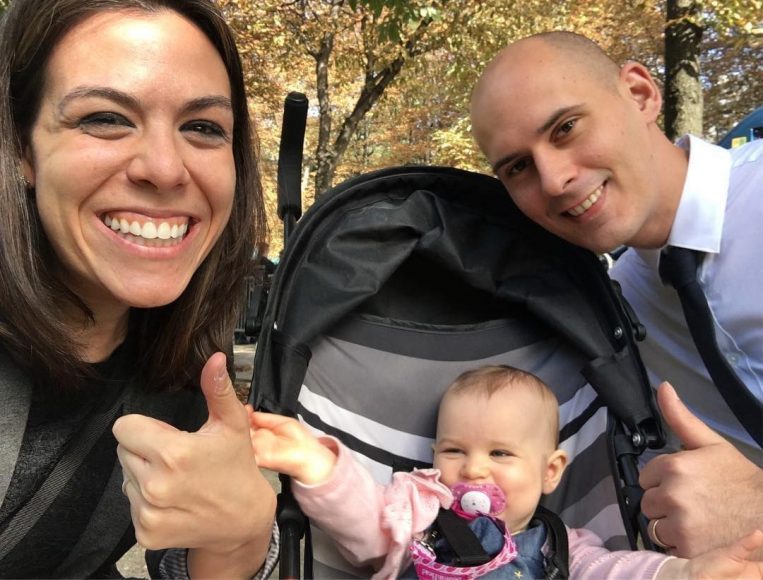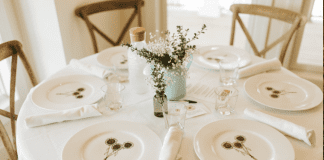Here is a peek at the complex world of bicultural marriage.
Being married to someone of a different nationality often sparks curiosity. The big question that always comes first is, “how did you meet??” followed by the assumption that life in a bicultural marriage is a harmony of two cultural ideals that sets your couple apart. While this may be true to some extent, our story has been marked by other themes I might not characterize as always “harmonious.”
Because I’ve always loved to travel, it was never a foreign (pardon the pun) concept to me that I might fall in love with someone who wasn’t an American. I would daydream about how we might meet and the beautiful mix of cultures that our love and life together would create. HA! HA!

I’m not the only one who thought like this. In fact, our culture conditions us to think this way. Ever known a single, unattached person who was about to set out on a voyage to another country? Or better yet, watched a film using the same narrative? There’s almost always an assumption that the excitement of being away from home might be enough to incite romance for anyone, whether they’re looking or not!
Being married to someone from another country has presented a host of joys and challenges. I’m here to set the record straight!
PROS
Bilingualism and Double Nationality
Two of the greatest advantages I’ve found to being in a bicultural marriage are the access to learning dual languages and double nationality for our family. By virtue of just being born to us, our children are all born as automatic citizens for both our home countries. We still need to fill out the paperwork to ensure their birth is registered in both countries and submit applications for passports, but their double nationality status is secured from birth, and we hope it will give them the freedom to decide where they might live and work one day, either in America or in Europe.
We’re actively teaching our children two languages because we don’t have much of a choice, ha! While my husband and I are both fluent in each other’s native language, it’s still easier for us to rely on our mother tongue. We’ve taken to communicating with our children in our mother tongue so they can hear the native accent, but at home, we’ll interweave both languages in conversation. But speaking two languages has at times caused things to get lost in translation and makes us really slow down and take time to communicate.
Cultural Values
My husband is French, and the French value quality time together. They take the time to get to know you. I’ve observed this among my husband’s family and friends, and my own French friends, and it’s one of the characteristics I’ve come to admire most about their culture. Once you’re in, you’re in for good. My husband is one of the most devoted people I’ve ever met and has challenged me to be the same way in my relationships— thoughtful, intentional, true to my word, and not spread too thin.
Cultural Traditions
The French place a high value on food in their culture. Good, quality food. Eating is not just a way to sustain yourself physically on the go or in a rushed manner, but it’s something they use to connect with each other. You might spend hours with friends over a meal, talking, laughing, savoring your food, and connecting. Meals in the French culture are just as much about sustaining your heart and mind as they are your physical body. My husband is an amazing cook, and I benefit every single day from his giftedness in this area. But aside from taste, he cares for quality food. He cares where we buy our food, and in turn, where the supermarket bought their food. What ingredients are contained inside? What was the animal fed while they were being raised? I now, more than ever, appreciate this quality in my spouse, who cares abundantly about what we put in the mouths of our children!
CONS
Communication
A relationship between two people from the same culture, on any given day, can be a challenge. So you throw in speaking quite literally two different languages, two cultures who view life differently and promote different values, two passionate and stubborn people, and you get a perfect storm for miscommunication at every turn. We’ve worked hard to be explicit in our communication, slow down and speak eye to eye when our kids are asleep, and if it’s important… we WRITE IT DOWN.

Immigration
If you fall in love with someone from another country (unless you’re a European falling in love with another European Union-member citizen), you will run into the problem of immigration if you wish to stay together and in close proximity for the long haul. And legally, I might add. Please do this legally, I beg of you. Either one or both of you will have to bite the bullet. It will be long, hard, and expensive, but stay the course. It took us more than 18 months for my husband to become a permanent resident, and that’s a best case scenario. We have to repeat the process every 10 years, unless he decides to pursue US citizenship. And hire the immigration lawyer – it’s worth its weight in gold.
Parenting
Committing your life to someone else from a different culture might also bring about conflicts in the area of raising children. We’ve struggled to see eye to eye most notably on the importance of a schedule for a child (hello 7:30pm bedtime!), what’s developmentally appropriate for children (table manners as an example), and more. It’s a lot of give and take and sharing from our hearts which values we feel most strongly about imparting to them.
Staying Connected to Family
My husband’s family and friends all still live in France, and now that we have three children, finding time and money to travel is more challenging than ever. Not to mention, a global pandemic has kept us apart now for a couple of years. The time difference makes connecting in real-time a challenge as well. My husband and I have now both spent an extended period of time in the other’s home country, away from our closest loved ones, and it can be hard not to feel resentment at times. But we challenge ourselves to remember why we pledged our lives to each other to begin with – because we wanted to build a life together, and we know we’re each taking our turn to live in the place that makes the most sense for now.
As in any marriage, some days are wonderful, and we couldn’t imagine it any other way, and other days we feel like we’ve made no progress in learning to understand each other and our various cultures in the past five years. Blending two lives and cultures has by far been the most difficult but also the most rewarding thing we’ve ever done, and I truly couldn’t imagine it any other way. We hope our children will feel the same as they grow up.










